Addition skills Easy Worksheets for Ages 4-8
9 filtered results
-
From - To
Welcome to our "Addition Skills Easy Worksheets for Ages 4-8" page, where young learners can embark on a fun journey into the world of math! Designed specifically for early learners, these worksheets provide engaging and interactive addition activities. With colorful illustrations and age-appropriate exercises, children will enjoy mastering basic addition concepts while enhancing their problem-solving skills. Our worksheets cater to various learning styles, ensuring that each child can grasp the fundamentals of addition at their own pace. Perfect for classroom settings or home practice, our resources will help building confidence and fluency in young math enthusiasts. Start your child’s math adventure today!
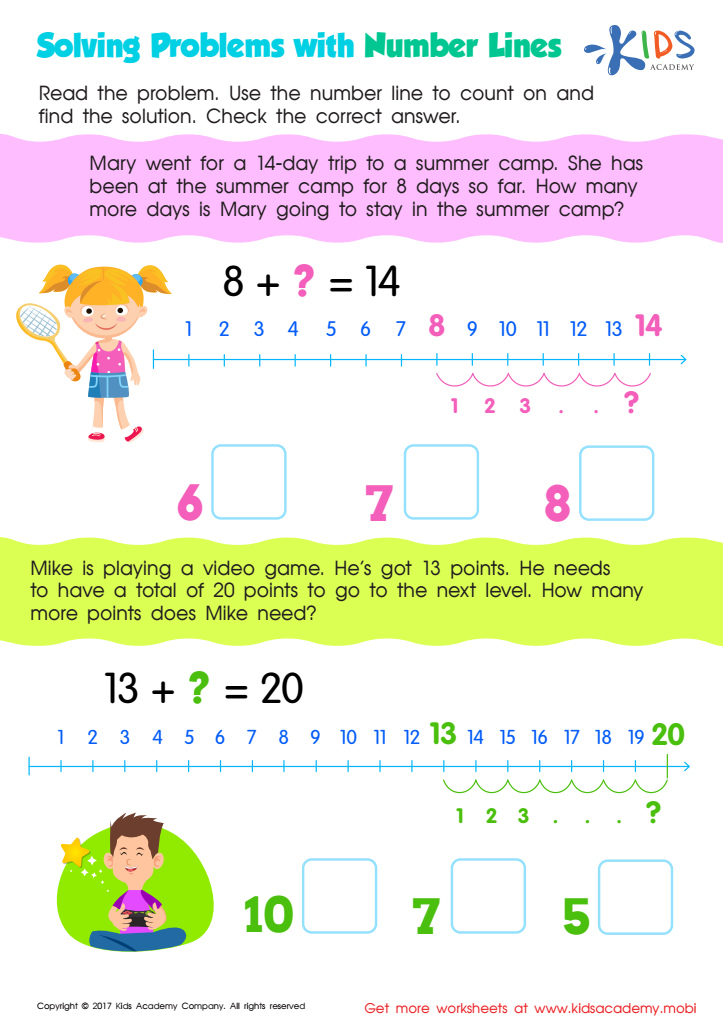

Solving Problems: Number Lines Worksheet
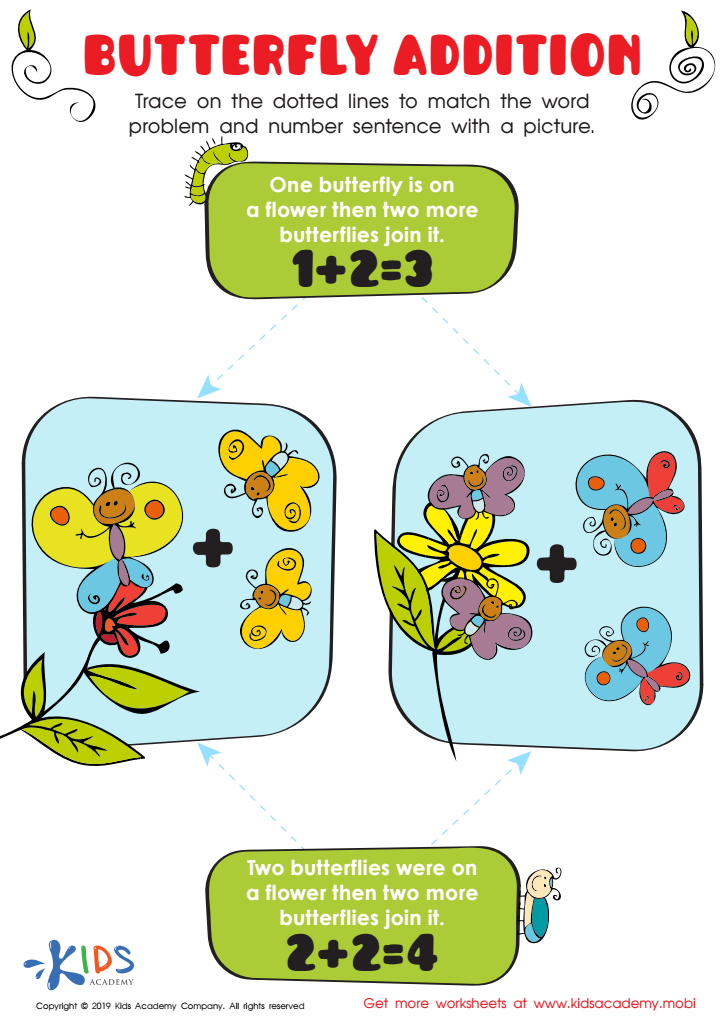

Butterfly Addition Worksheet
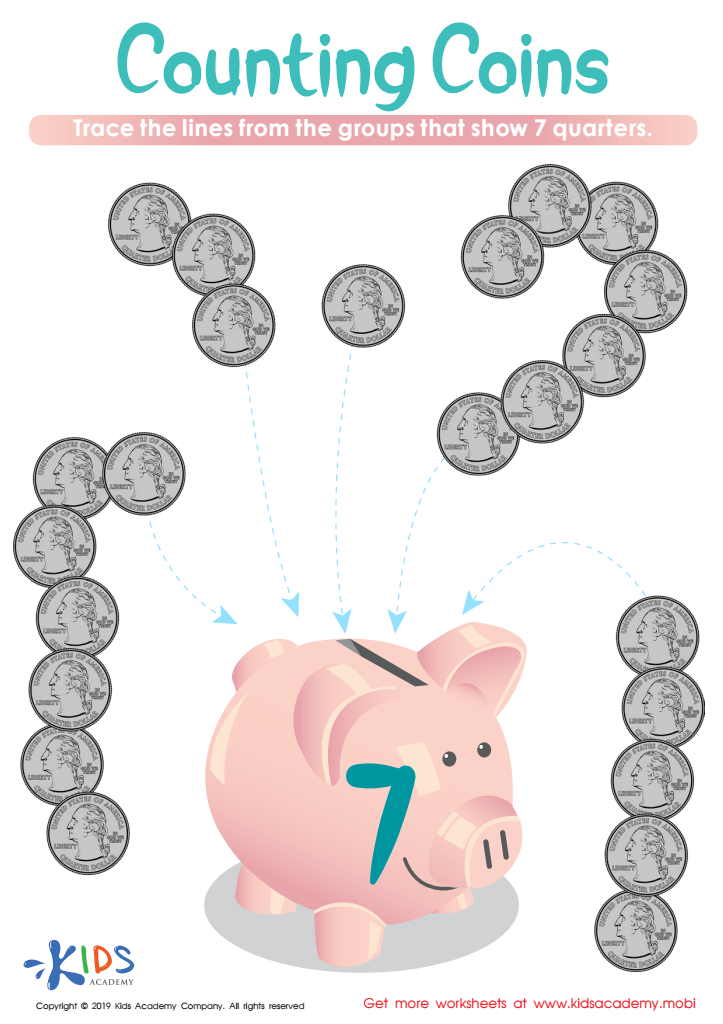

Counting Coins Worksheet
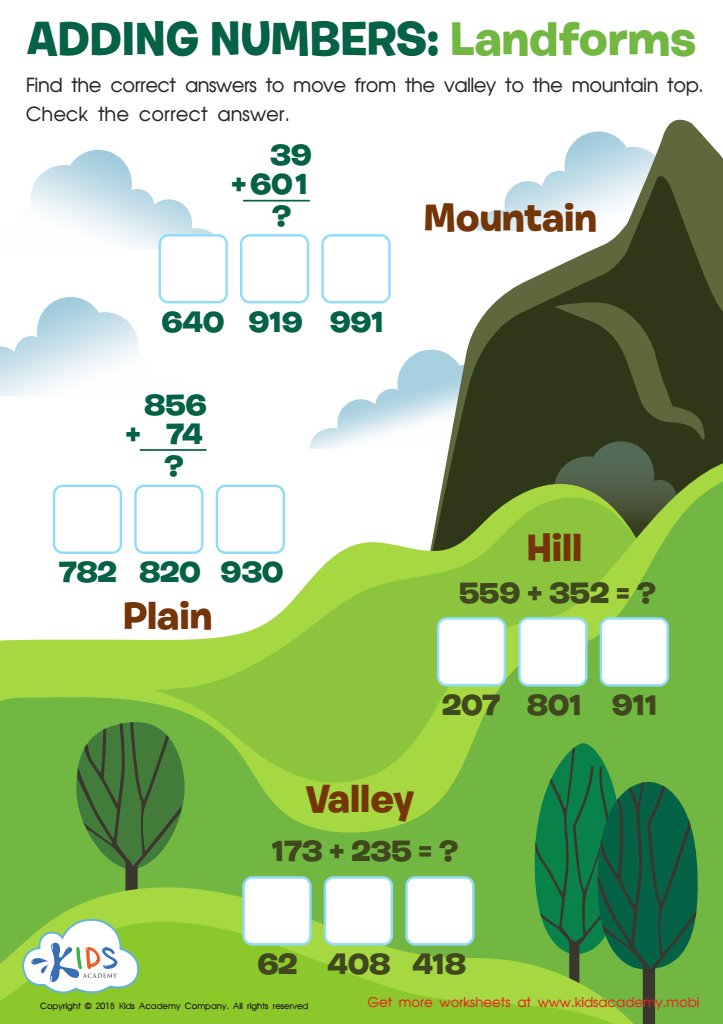

Adding Numbers: Landforms Worksheet
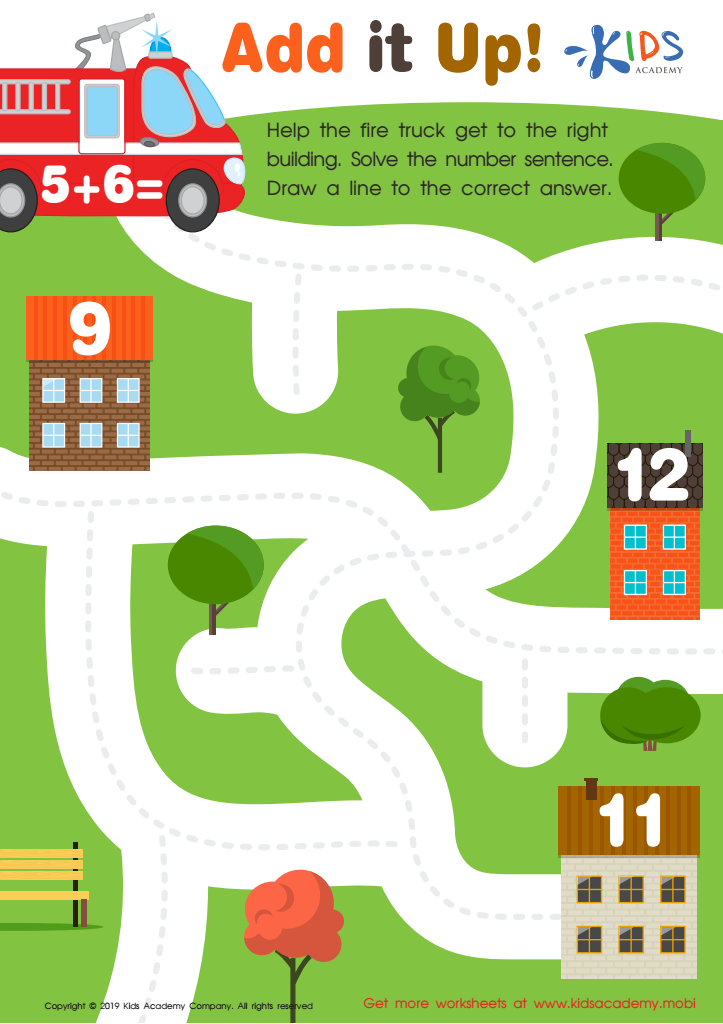

Add it Up Worksheet
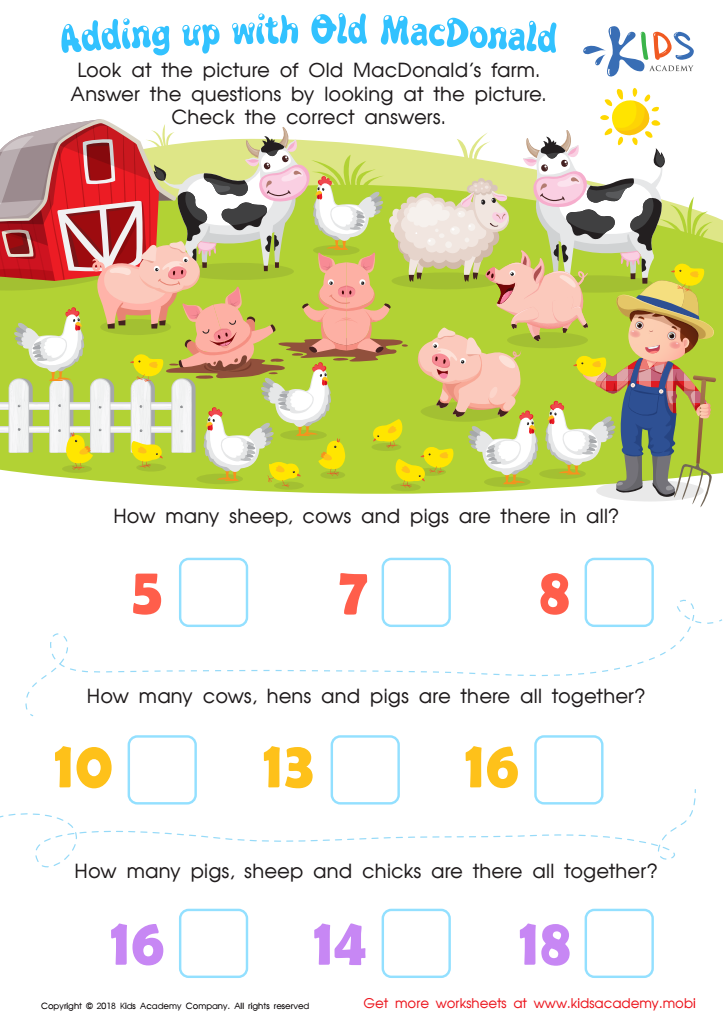

Adding Up with Old MacDonald Worksheet
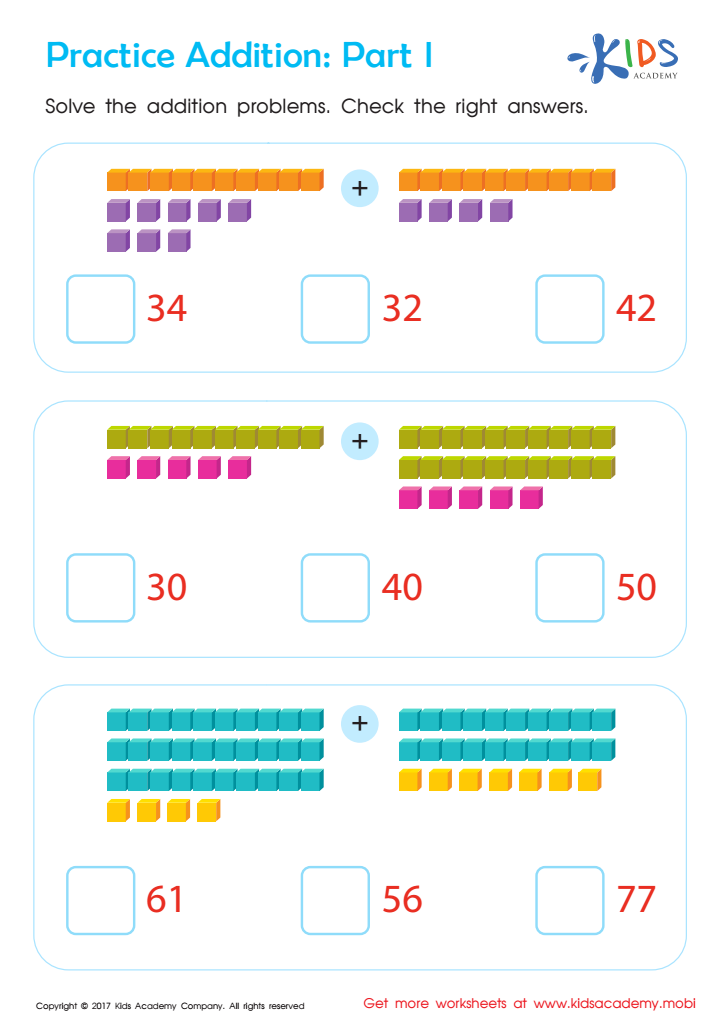

Practice Addition: Part 1 Worksheet
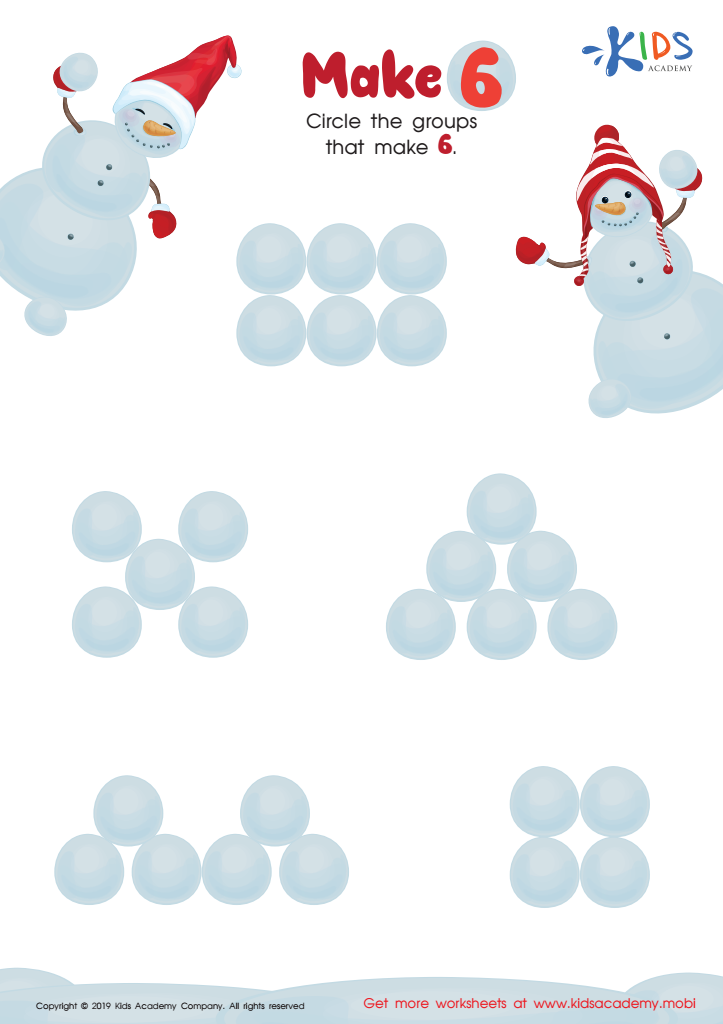

Make 6 Worksheet
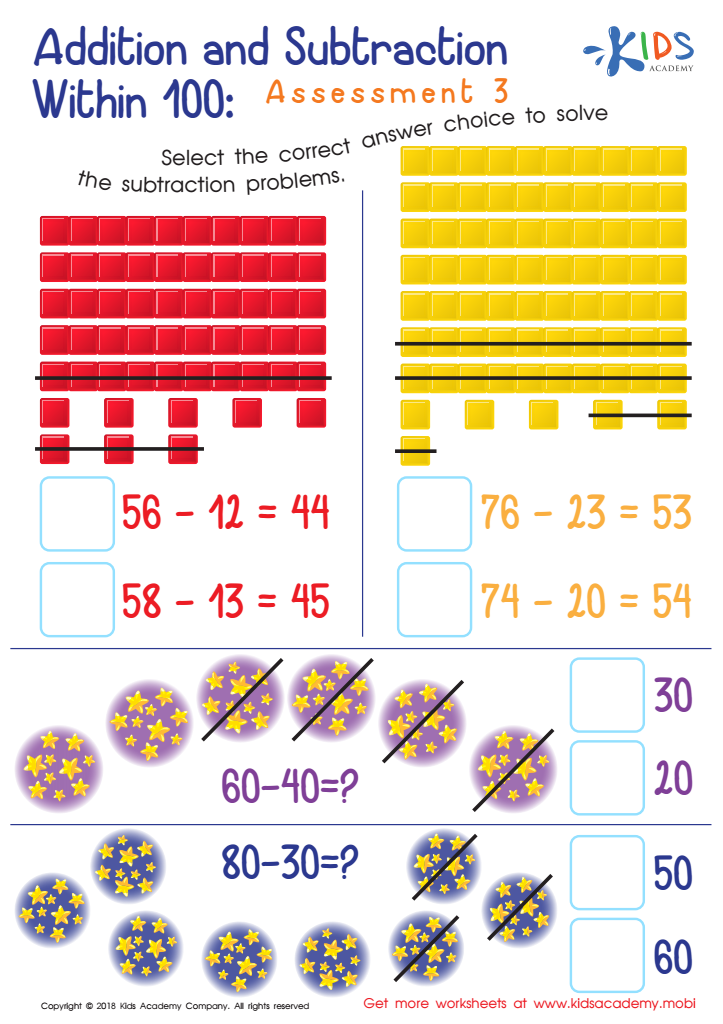

Addition and Subtraction Within 1: Assessment 3 Worksheet
Addition skills are foundational for children aged 4-8, a critical period of cognitive and social development. Mastering these skills not only supports academic progress but also fosters confidence and curiosity in young learners.
First, addition is a basic building block for more complex mathematical concepts that children will encounter in later grades. Early introduction to addition encourages a positive relationship with math, minimizing math anxiety as they progress in their education. By practicing these skills at a young age, children cultivate problem-solving abilities and critical thinking.
Moreover, addition is often integrated into everyday activities, providing practical life skills. For example, children use addition when counting objects, knowing how many toys they have, or sharing snacks among friends. This real-world application reinforces their learning and shows them the relevance of math in daily life.
Finally, focusing on addition skills can enhance communication between parents, teachers, and children. Engaging in math-focused activities at home boosts collaboration and strengthens parent-child relationships. Overall, emphasizing addition caters to cognitive growth, fosters curiosity, and prepares children for a successful future in academics and beyond. By fostering these skills, parents and teachers play a pivotal role in shaping lifelong learners.
 Assign to My Students
Assign to My Students





















